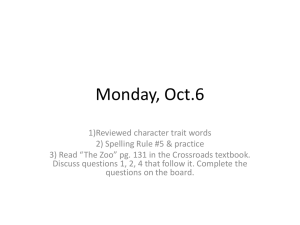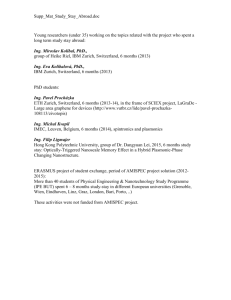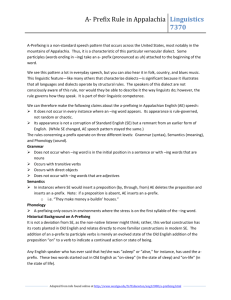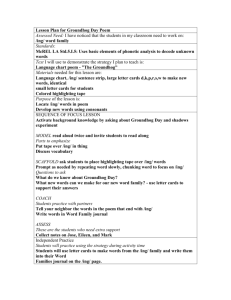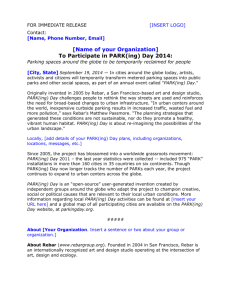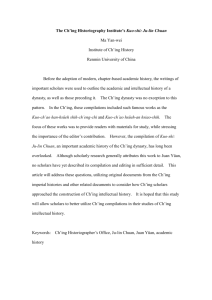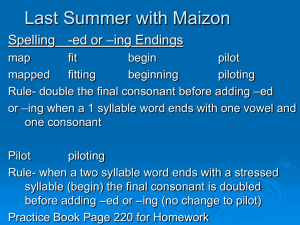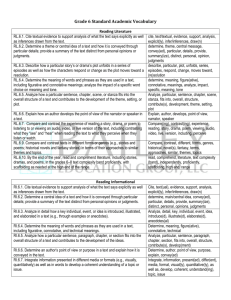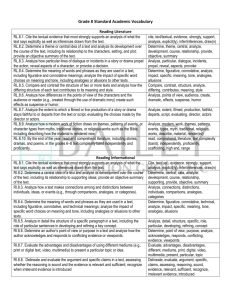Nōmen: Latin II, R____ Diēs: Class Notes Propositum: DWBAT
advertisement
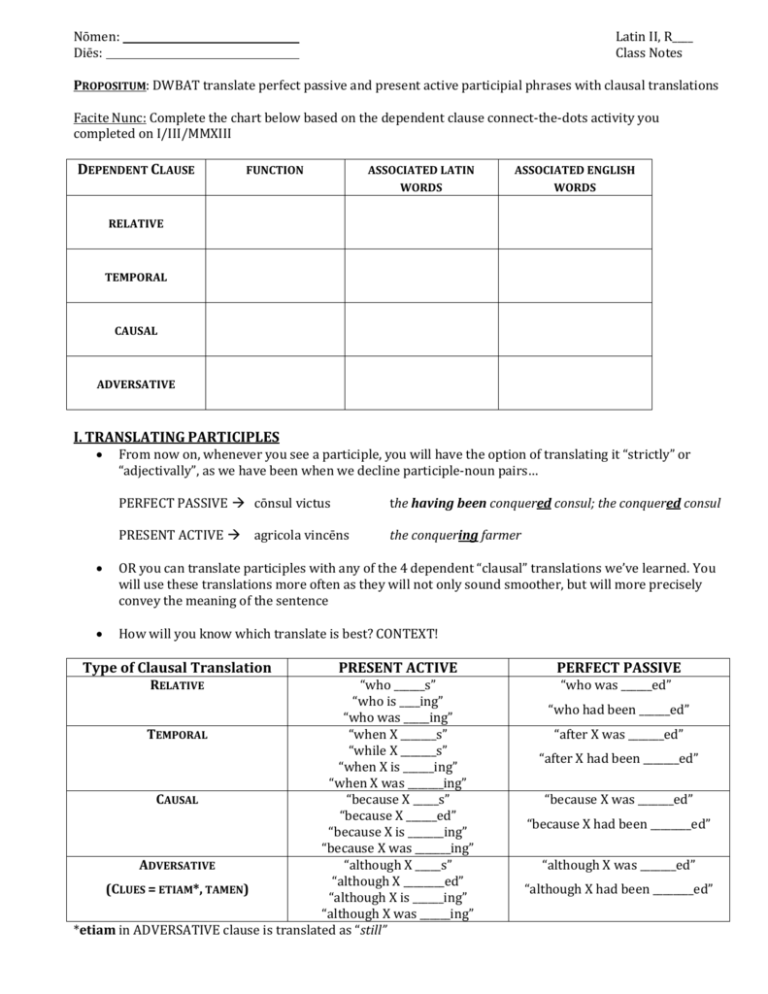
Nōmen: Diēs: Latin II, R____ Class Notes PROPOSITUM: DWBAT translate perfect passive and present active participial phrases with clausal translations Facite Nunc: Complete the chart below based on the dependent clause connect-the-dots activity you completed on I/III/MMXIII DEPENDENT CLAUSE FUNCTION ASSOCIATED LATIN WORDS ASSOCIATED ENGLISH WORDS RELATIVE TEMPORAL CAUSAL ADVERSATIVE I. TRANSLATING PARTICIPLES From now on, whenever you see a participle, you will have the option of translating it “strictly” or “adjectivally”, as we have been when we decline participle-noun pairs… PERFECT PASSIVE cōnsul victus the having been conquered consul; the conquered consul PRESENT ACTIVE agricola vincēns the conquering farmer OR you can translate participles with any of the 4 dependent “clausal” translations we’ve learned. You will use these translations more often as they will not only sound smoother, but will more precisely convey the meaning of the sentence How will you know which translate is best? CONTEXT! Type of Clausal Translation RELATIVE PRESENT ACTIVE “who ______s” “who is ____ing” “who was _____ing” TEMPORAL “when X _______s” “while X _______s” “when X is ______ing” “when X was _______ing” CAUSAL “because X _____s” “because X ______ed” “because X is _______ing” “because X was _______ing” ADVERSATIVE “although X _____s” “although X ________ed” (CLUES = ETIAM*, TAMEN) “although X is ______ing” “although X was ______ing” *etiam in ADVERSATIVE clause is translated as “still” PERFECT PASSIVE “who was ______ed” “who had been ______ed” “after X was _______ed” “after X had been _______ed” “because X was _______ed” “because X had been ________ed” “although X was _______ed” “although X had been ________ed” II. Exerceāmus! Translate sentence 1) SIX different ways. Translate sentence 2) FIVE different ways. Then select two translations for each sentence that sound the BEST to you based on the context. I. Rōmānī victī in pugnā Cannārum etiam contrā Punicōs fortiter pugnāvērunt. (fortiter = adverb from fortis, fortis, forte) a. b. c. d. e. f. The BEST translations are ______ and _______ because II. exercitus, quattuor bella simul gerēns, nōn satis dūcum bonōrum habuit. (quattuor = IV; simul = at the same time; satis = enough (+GEN.)) a. b. c. d. e. The BEST translations are ______ and _______ because CHECK ___________
